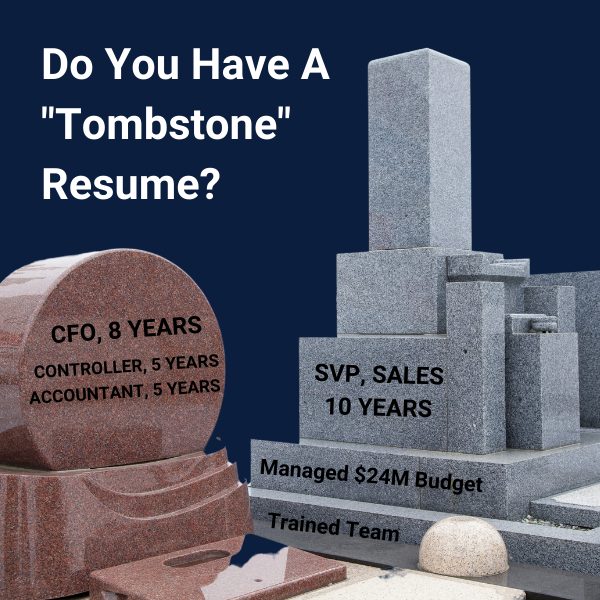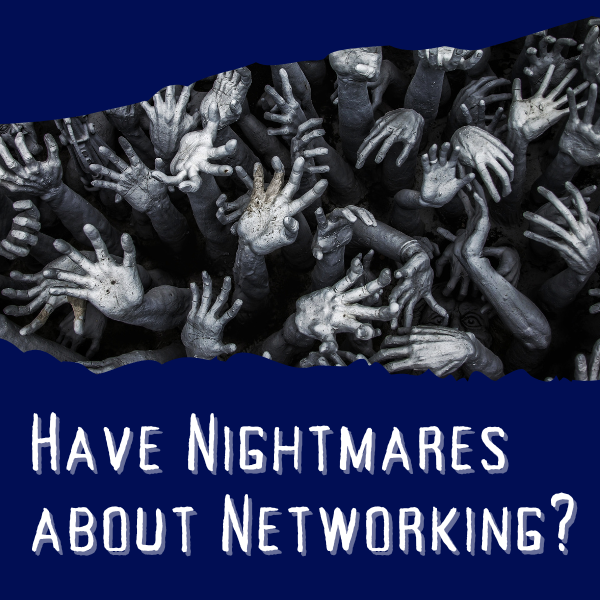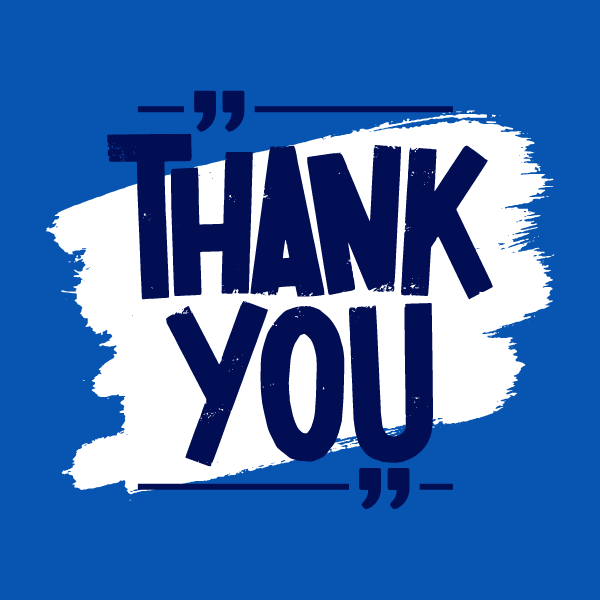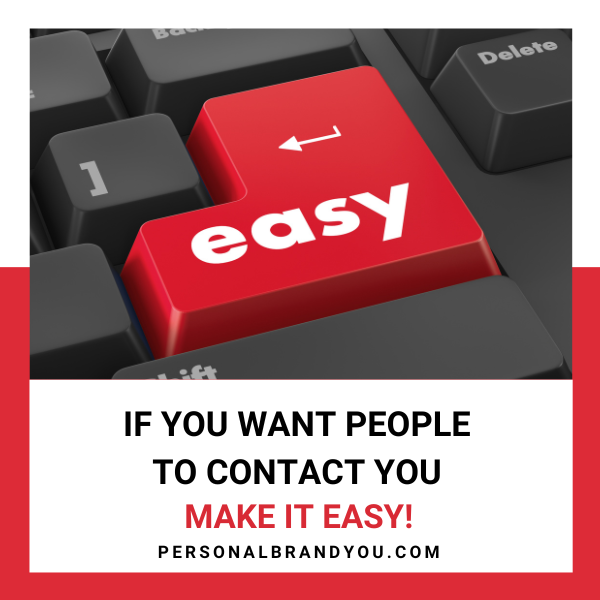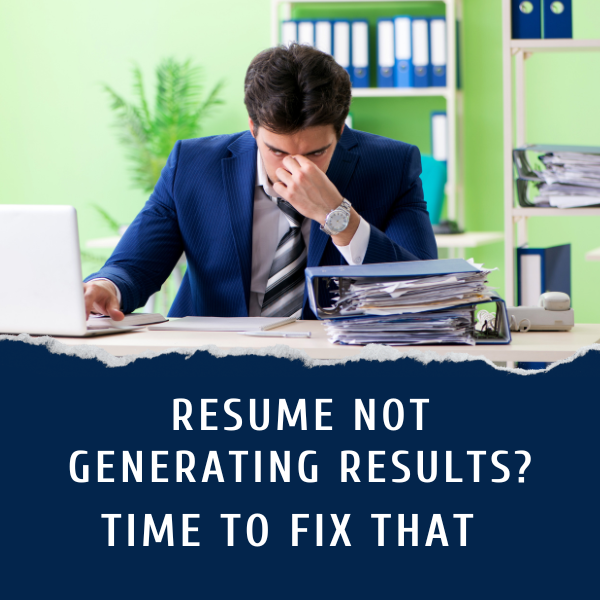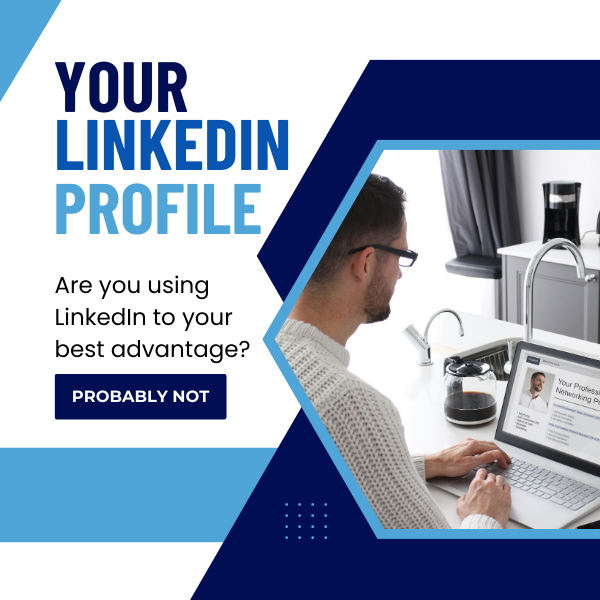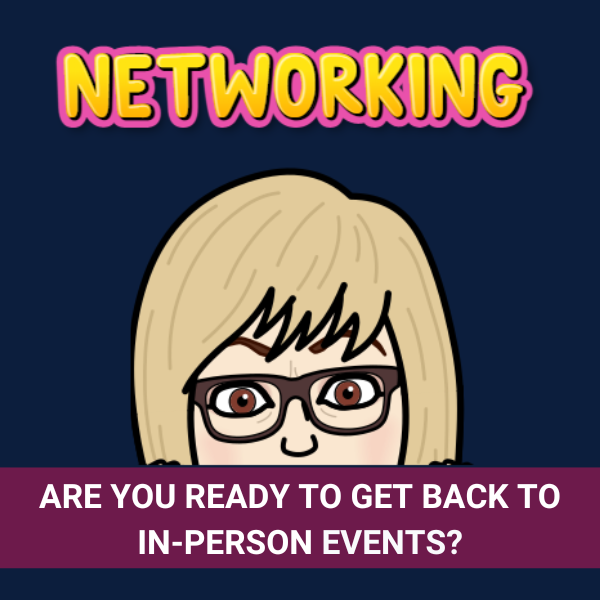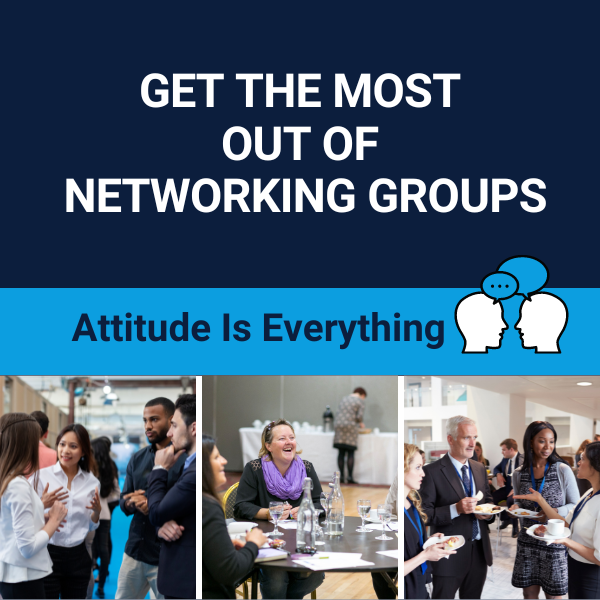Do You Have A “Tombstone” Resume?
While most people think of resumes as employment histories, today’s resumes are marketing tools designed to sell you (the product) to a potential employer (the buyer).
They are not boring lists of responsibilities. They are not a place to document everything you do on a day-to-day basis. They don’t include every job you’ve ever had or every single thing you’ve done during your career.
That style of resume is sometimes called a “Tombstone” resume because it focuses on the past, not the future.
To be effective, your resume needs to highlight the skills and achievements that make you valuable to potential employers.
What Future-Focused Means
The days of getting a job based on your experience or job title alone as long gone. You may think managing a $MM budget or having executives reporting to you is impressive. But, on it’s own, it’s not.
How To Take The Nightmare Out Of Networking
You’ve probably heard about the “hidden” job market. It’s really not some secret place where the jobs are. It’s about the number of jobs that get filled through referrals. And that’s why career professionals talk about networking. Contrary to popular belief, that’s not simply making connections on platforms like LinkedIn, it’s building relationships with people who will think of you when they hear about a job that might interest you.
While job boards have their place, spending all your time applying to jobs online isn’t practical. Neither is expecting recruiters to contact you, even if your LinkedIn profile and other social media profiles are compelling. .
While 65% of recruiters use Linkedin to source candidates, according to the 2021 Jobvite Recruiter Nation Report other platforms have gained popularity. Facebook came in at 68%, Instagram at 46%, and YouTube at 35%. The report also notes that recruiting on TikTok is on the rise.
The majority of recruiters (53%), however, noted they found the highest quality candidates on LinkedIn.
Just remember, recruiters don’t work for you; they work for the employer. They are online looking for candidates to fill specific positions. More precisely, they are looking for a square peg to fit into a square hole. If you are a round peg, you’re out of luck.
Thank You Notes? Here’s Why You Need To Send Them
Cover letters are like thank you notes . . .
For every recruiter or hiring manager who says they don’t read them, there’s another who says they do.
And occasionally, I’ve heard that a candidate’s thank you note was the reason they got the job.
Just as with cover letters, the key is to make a compelling argument for them to hire YOU.
Boring thank you notes that read “thank you for taking the time to meet with me… Blah blah blah“ are a waste of time.
Unlock Opportunities By Putting Your Email Address On LinkedIn
Want more people to contact you on LinkedIn? Make it EASY for them.
Many people think that if someone wants to contact them, they’ll simply send an InMail.
Maybe they will; maybe they won’t.
Relying On InMail
When I was a recruiter, I spent hours on LinkedIn searching for candidates to fill open positions.
If I found a candidate who looked like they were perfect for our client’s job, I would send them an InMail and track down their email address just to make sure.
But, not if they were a “maybe.”
Read more
Resume Not Getting Results? Time To Turn Your Boring Employment History Into A Marketing Tool
Do you send your resume out just hoping for the best?
Do you share it with friends with the caveat that you just threw it together?
I’ve looked at thousands of resumes. Many potential clients I talk to today think their resume is “not too bad, probably needs a little tweaking.”
When I look at their resume from the perspective of a personal brand strategist and former recruiter, I see a resume that’s rubbish.
Long boring lists of duties and responsibilities, highlighted as achievements.
✔️ Developed and managed marketing campaigns for key clients . . .
✔️ Managed organizational functions for the largest global . . .
✔️ Worked closely with leadership on corporate communications . . .
Time to change that.
Are You Using LinkedIn To Your Best Advantage? Probably Not.
LinkedIn provides many opportunities for you to sell yourself to recruiters, employers, and potential clients.
But LinkedIn is only a tool. It’s up to you to use it to your best advantage.
Unfortunately, most people don’t use LinkedIn’s features to their best advantage.
When it comes to your profile:
🔹Does it have LinkedIn’s default Profile Banner?
🔹Is your Headline your current position (LinkedIn’s default)?
🔹Do you have 1 or 2 paragraphs in your About section, maybe talking about your employer?
🔹Do you ever comment on anyone’s posts, let alone write your own?
If you haven’t updated your Headline or written your About section because you don’t know the parameters and character counts LinkedIn supports, now you have no more excuses.
Successfully Navigate Your Next Networking Event (Even If You Dread Them)
After two years of virtual everything, in-person events are back. I’m headed to 2 holiday networking events this week. It’s the first time I’ll be going to a local industry event in over two years. I’m excited and a bit nervous.
Most people I talk to say they hate networking events. They feel awkward and uncomfortable. They are tired of boring conversations. And they feel like they never met anyone anyway.
If that’s you, I’m going to help you change that right now.
CHANGE YOUR ATTITUDE
Let’s start with attitude. A lot of people don’t like networking because they think of it as transactional. They are going to an event to ask people for help.
Wrong attitude.
A better attitude, go to events to meet people, and think about how you can help them.
While walking into a room of strangers who seem to all be friends isn’t easy for most of us. There are many ways to make it easier, even fun.
Make It Easy For Recruiters To Say Yes To You
Most recruiters and hiring managers are sourcing candidates on social media, particularly LinkedIn. In fact, 53% of recruiters said they found the highest quality candidates on Linkedin when responding to Jobvite’s 2021 Recruiter Nation Survey. This is great news if you have a robust, optimized LinkedIn profile.
As a recruiter I spent hours on LinkedIn sourcing candidates, often scrolling through 500+ possible matches. Some were easily eliminated due to missing or inappropriate photos. My all-time favorite unsuitable photo is the woman wearing a wedding gown, veil, and all.
Potential candidates fell into 2 categories:1) Yes, contact them immediately and 2) they might be a possibility. The one thing that consistently moved candidates from maybe to yes was if it was easy to contact them.
The point is, don’t make the mistake of thinking if recruiters want to contact you they will track you down or use an InMail. Unless they think you are a perfect candidate, they may not. You can increase your odds by making it easy for them by including contact information on your LinkedIn profile.
Can You Answer This Key Question?
Some people go into interviews and wing it. Others prepare ahead of time. Usually this includes researching the company and planning responses for commonly asked interview questions.
Questions like “what is your management style?” and “where do you see yourself in 5 years?”
But, there’s one key question they often don’t prepare to answer.
“Why do you want to work here?”
When I was recruiting, I always asked candidates if they knew anything about the company. The smart ones would tell me a few things they learned while researching the company. Things they liked, that made them want to work there.
The unprepared would say “no” and leave it at that.
How To Get The Most Out Of Networking Groups
After 2 plus years, in-person networking events are back. While you may not find pre-pandemic crowds yet, attending these events is an important part of the job-search process.
The truth is that people like to do business with people they know, like, and trust. This philosophy extends when it comes to filling open positions. It’s one of the reasons that companies have employee referral programs.
It’s also one of the reasons you should have been attending virtual events, and have to ease back into in-person. There are many networking opportunities out there.
Industry Events
If you’re looking for a new opportunity industry events are the best way to meet your peers. Attending industry conferences is a great way to meet people at various levels from different parts of the country.

